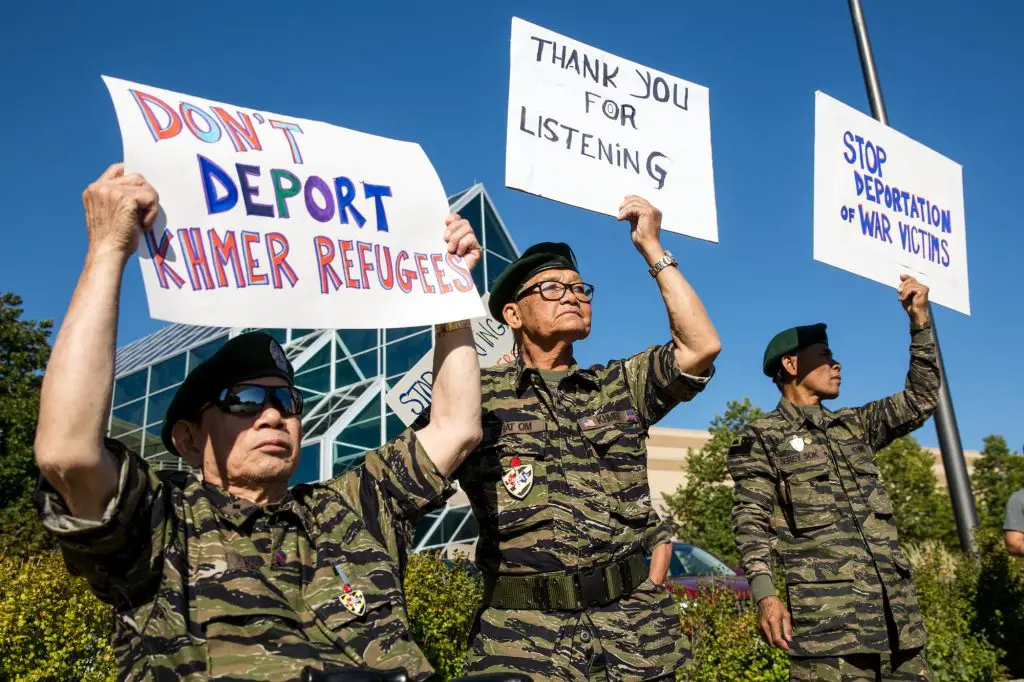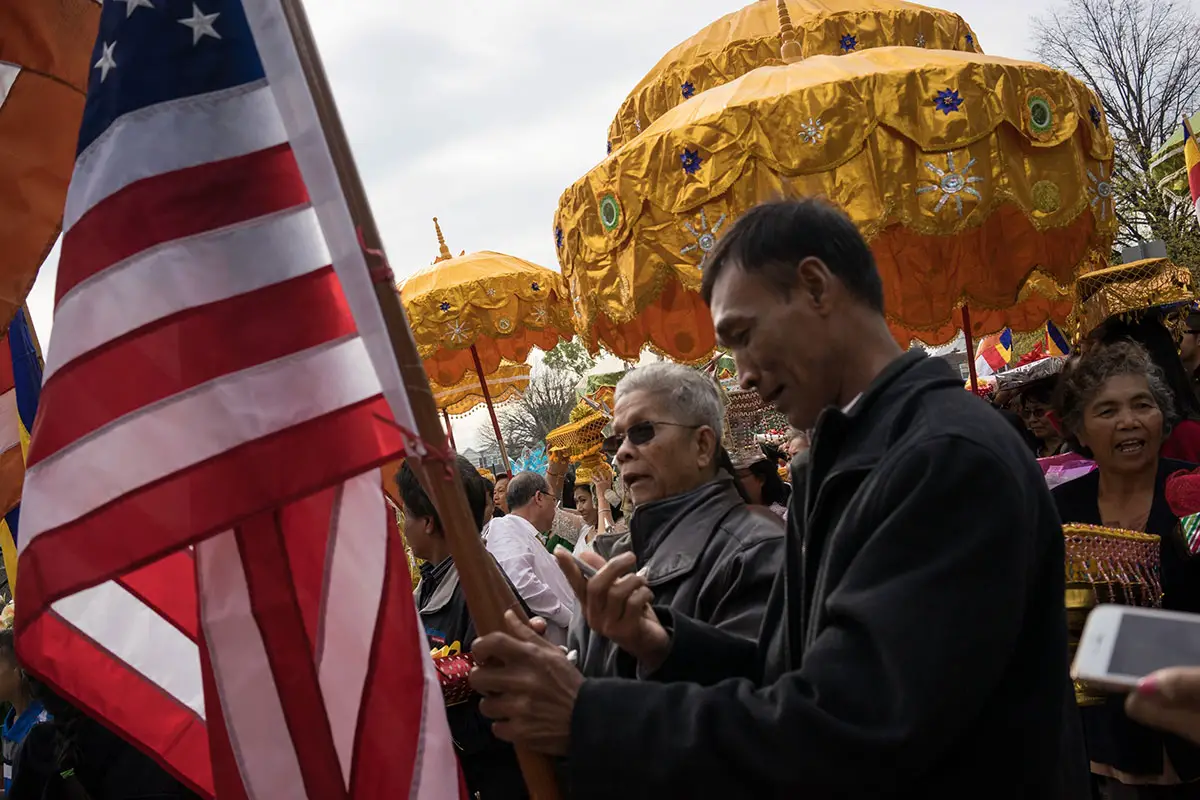Judging by its recent actions, it would seem as if the U.S. is trying to relive history and go back to the period of Japanese internment camps—except this time, the persecuted are Cambodian Americans. The Immigration and Customs Enforcement (ICE), along with the American government, recently decided that it was time to crack down on immigration, starting with primarily Cambodian Americans. More than one hundred immigrants from the Southeast Asian country, across the Bay Area and nationwide, have been detained by ICE since October, according to the Southeast Asia Resource Action Center (SEARAC).
Mari Quenemoen, SEARAC’s director of communications and development, said that the majority of those rounded up are detained at Adelanto Detention Facility in California. Quenemoen also said that SEARAC has been informed that many of the detained will end up being questioned by the Cambodian consulate at an ICE facility in Indiana. Most of the individuals detained are refugees and own a green card. In other words, most of these Cambodian Americans are in the U.S. legally, but, according to ICE, the detention is a necessary step in the process of removing nineteen hundred Cambodian nationals from the U.S., fourteen hundred of whom have criminal records and five hundred of whom who have “no lawful status to remain in the country.” These “unlawful” people are most likely refugees of the 1970s Khmer Rouge, a regime that used genocide and forced state planning to control the populace, leading many citizens to flee the country.
Many people have been saying that the roundup is a shock because the rate at which people are being detained has been quick; even the executive director of SEARAC, Quyen Dinh, said that “…we’ve never seen anything like this.” However, while no such act has occurred within the twenty-first century, America has a sordid past when it comes to detaining immigrants from countries with whom its feuding, the prime example being the U.S. internment of Japanese-American citizens during World War II. Similar to the way in which Japanese Americans were caught in the political fire between Japan and the U.S., Cambodian Americans are now being caught in the political issues between Cambodia and the States.

As a result, Cambodian Americans have found themselves as pawns in an immigration war between the U.S. and Cambodia. The American choice to detain the immigrants partially stems from the Cambodian government’s decision to reject the refugees who the U.S. sent to Cambodia, as the country claims they have virtually no ties to the country, having left as children. Those targeted have mainly been people with a criminal record, but who have already served their time. Given their unique criminal background, they have been supervised by ICE, meaning that the individuals have regularly scheduled check-ins.
However, many of the individuals were unexpectedly detained during their check-in and never made it out of the facility. Quenemoen pointed out that a limited number of deportees were accepted by Cambodia, after the 2002 repatriation agreement with the U.S., but because of intense protests from Cambodian Americans, the Cambodian government suspended repatriation for some time. In retaliation, the Trump administration decided to place visa sanctions on the country, making it difficult for officials to travel to the U.S. So, as a sign of cooperation, the Cambodian government agreed to interview twenty-six people and accept a limited number of repatriations, but the Trump administration detained even more Cambodian Americans to coerce the Cambodian government into accepting more of its citizens.
According to Christopher Lapinig, a legal fellow for Asian Americans Advancing Justice-Los Angeles (AJ-LA), ICE has retained members without following their own protocol or “complying with their obligations under the law and Constitution.” Lapinig says, “They have not given notice as to the reasons why the class members have been re-detained, and they did not give any individualized consideration as to whether or not each individual who is being re-detained poses any risk to the community in terms of safety or poses a risk in terms of flight.”
So what are they really being detained for? They have no idea. There is no information that these immigrants are flight-risks or pose a danger, so repatriation should not be a solution to a made-up problem. The individuals are just being used as pawns in a game between governments. Because of the detainment, civil rights advocates from the San Francisco and Los Angeles chapters of Asian Americans Advancing Justice have filed a class-action lawsuit against the U.S. government to object to the detention of Cambodian nationals. Anoop Prasad, an attorney with the San Francisco chapter, has called the detention illegal, saying, “There was no process, no hearing, no evidence, no cause to support the detention of these people.”
The suit also argues that Cambodian Americans are, in fact, American. Many of the detainees were born in refugee camps and have never been in the country of Cambodia. Their only tie to the country is from their parent’s nationality, but, other than that, they have little contact with the culture and language. According to the suit, raids have been conducted in homes, workplaces and even at the scheduled check-ins, as if the check-in was a premeditated plan to persuade the individual to partake in their own detention. The hope for many is that the suit will bring about a legal ruling that ceases these attacks on America’s people.










